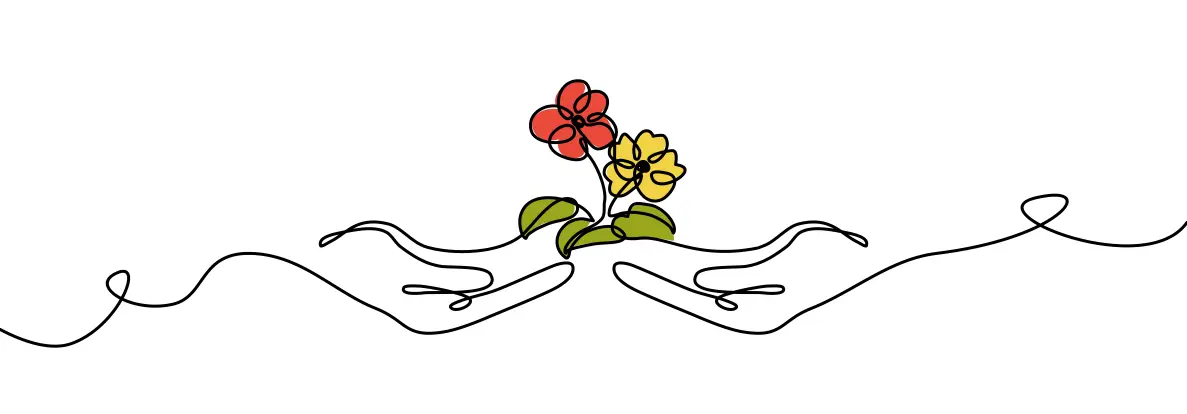
“Do you want to be right or happy? unfortunately, you can’t have both at the same time.”
(Marshall B. Rosenberg)
Nonviolent Communication is a communication concept developed by Marshall B. Rosenberg in the early 1960s as a result of the American civil rights movements with which he was involved and in which he campaigned.
The NVC is based on the fundamental attitude of appreciative interaction between people. It helps people to improve the flow of communication and contributes to peaceful solutions in conflicts, in all human spheres. Empathy, which Rosenberg sees as the basic prerequisite for successful communication, plays the most important role here. He believes that the form in which we communicate with each other is decisive in determining whether we are willing to develop empathy for our counterparts and whether our needs can be met.
The unprejudiced and honest interaction in Nonviolent Communication focuses on the needs and feelings behind actions and conflicts.
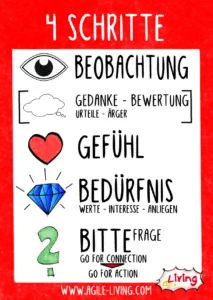

What can I perceive with my senses – see, hear, smell, taste, touch? If we formulate an observation free of judgement, this is an important prerequisite for ensuring that our interlocutor does not immediately encounter resistance. If our counterpart contradicts us, it is useful to reflect on whether we have actually named an observation.
Feelings are indicators of whether or not our needs are being met. We should always remember that no one can make us feel. Our feelings are neither good nor bad. Depending on how we interpret the situation our feelings arise – we “think” our feelings ourselves….
All people have the same needs – but often not at the same time. Needs can be met in many ways, although we often have a preferred strategy for meeting a need. Meeting a need is independent of a particular person. And sometimes it is necessary to grieve when the preferred strategy is not possible at the moment. Then we can think about what our second best strategy might be…..
A request differs from a demand in that a “no” can be accepted. Requests should be very specific and formulated for the present moment. Only in the “now” can our interlocutor act. Furthermore, it is very helpful if we formulate our request positively, i.e. we say what we want and not what we do not want. This increases the likelihood that we will be able to meet our needs.
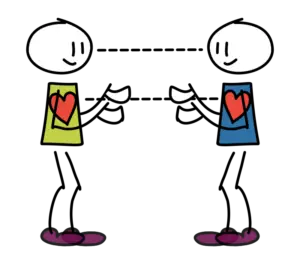
A conflict can be the cause of a stressful life situation, but it is not the only one.
Possible causes
In addition to mediation, empathic accompaniment is another helpful method from non-violent communication. In contrast to mediation, it is very well suited for individuals, but can be used just as successfully for two-person relationships, groups or teams as a clarification method.
EMPATHIC CONTACT
In empathic contact, the coach helps you – alone or together – to gain access to your feelings, to what is alive in you at the moment and to gain clarity about your concerns. On the basis of this clarification, you develop your own solutions independently and have a concrete plan of action in writing as a result. In this way you experience that you can find your own way to inner balance and strength.
In depressive phases, Empathic Accompaniment helps you to recognise and accept the unfulfilled needs that have led to the painful experiences. You can redirect your energy to the present.
This process leads to relief, a change of perspective, relaxation and a new joy for life.
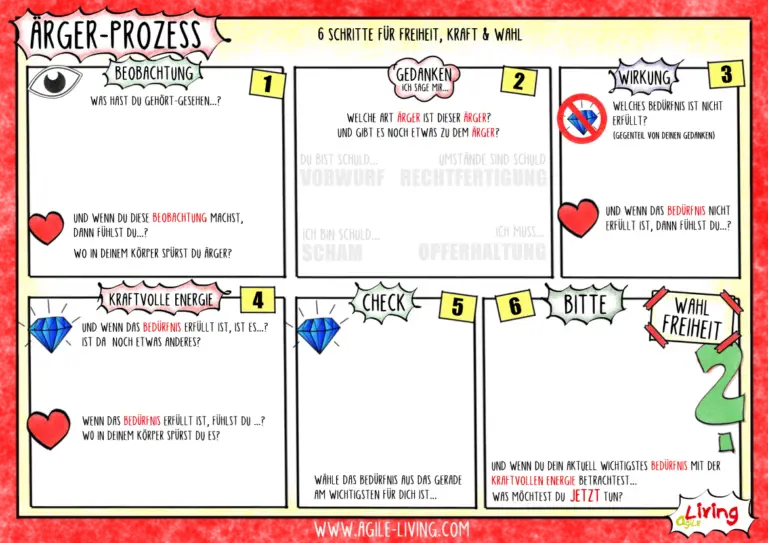
This process is useful in all situations where we are angry with others or ourselves. It helps step by step to access the underlying feelings and unfulfilled needs.
It is important to leave enough space for judgements and evaluations. Many people believe that NVC practitioners are not allowed to have judgements and that evaluations are undesirable. I do not share this idea.
We humans need judgements and evaluations so that we can orient ourselves more easily. To train ourselves not to do this would take away an important possibility to react. It would be helpful, however, if we were nevertheless aware that our thoughts and judgements are created by ourselves alone. No one else is responsible for them.
In the “difficult” situations it is up to us to question the judgements and find out what they stand for? What needs are not being met right now? And how do I feel when this need is not fulfilled?
With the anger and guilt process we can answer precisely these questions and thus become capable of acting again in order to look for sustainable solutions that can fulfil the needs of all.
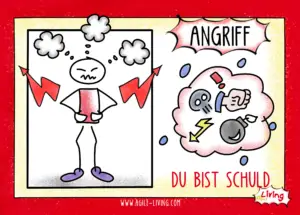
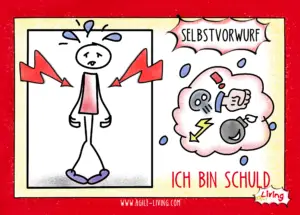
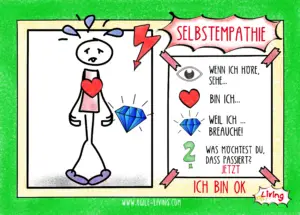
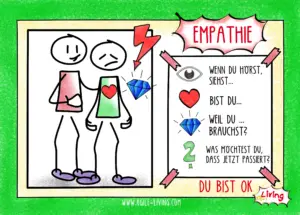
In Nonviolent Communication we distinguish between four ways of responding to a difficult statement by another.
The first two are usually very familiar to us: blaming the other person or blaming ourselves. These reaction patterns usually do not help to create a constructive climate for conversation.
An empathetic attitude, with myself and the other person, helps to defuse the situation and create a basis for discussion in which the fulfilment of needs and interests becomes possible again.